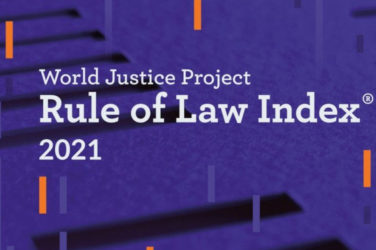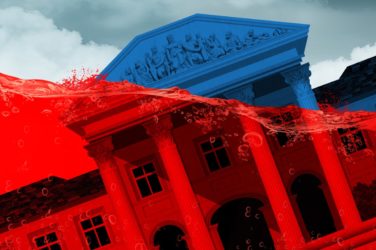Just one year ago today, wearing his trademark mile long smile and standing in bright sunshine on the grounds in front of Parliament, Nigel Farage proclaimed 23 June as United Kingdom Independence Day (UKID). Since I live outside the island, in that vague though vast space referred to as “abroad”, I seem to have missed the details of the celebrations that presumably are taking place throughout the land. The least we can do, however, is record for posterity the overarching achievements of the past 12 months. After all, the unbounding of Prometheus is something that everyone, wherever they are in that “abroad”, is supposed to be able to profit from in what has been called the great “win/win” adventure of the first part of the twenty first century.
Let’s start, as we should, at the beginning. The Referendum never asked whether voters approved of the deal Mr Cameron had obtained in Brussels in February 2016. Most likely few ever read it (though it is a very short document). Had they done so, even members of London Clubs would have been honor bound to admit that never had a member been given such preferential treatment. Instead, the government posed an all or nothing question which allowed tub thumpers to drown out all discussion. When the results came through, incredulity was the mark of the hour. Participants and observers everywhere expressed their astonishment at the outcome. Some of the alleged winners even struck a tone of exceptional gravity. Bojo and Mickey, partners in crime, were ashen faced and nervous as they appeared before the TV cameras to announce victory. The then Prime Minister, guilty of one of the most crass examples of public hubris in recent times, resigned forthwith. Some members of the European Parliament stood before their building and demanded resignations of its President (he would leave months later, but for reasons linked with his own personal agenda) and others. The Pound fell, suggesting, in another example inciting disbelief, that the possibility of the Brexit result had not been factored in by all the smart traders populating the City of London.
Within a few days, things became clearer (if that is the right expression). Nigel admitted that most of what he had said was simply a pack of lies. The Conservative Party recognized that it did not, in fact, have any Brexit strategy. One year later, it still does not have one. It is gradually making everyone aware that it will never have one (no doubt a brilliant negotiating approach – if you have no idea what you are doing, that makes it so much more tricky for your adversaries to figure it out). The same party quickly selected a new leader, who in turn sidelined a number of key figures and stuck Bojo into Foreign Affairs, a ministry where, so it was hoped, he could do the least harm. Nigel wisely stayed well above the fray. He had masterminded everything, all that remained was to bludgeon repeatedly the lesser mortals charged with “implementing Brexit”, and otherwise consolidate his international stardom as entertainer (a career path with exceptional possibilities given the events unfolding in the US).
The first days on the islands made a few other things obvious. Throughout its history, the senses in which the Kingdom was united had always been shaky. The characteristics of the Brexit vote underlined the splits, as if that were necessary. Mrs May, from the first, displayed the strong tendencies to hubris that have been her downfall. She treated the non-English people with an indifference calculated to boomerang. More than that, she appeared to believe that she and the small group around her could behave as hermetically as she wished. That false bravado carried over fatally into her behavior in Europe and indeed elsewhere. The scarcely credible notion that, in today’s world, the English still believed they are at the center of everything, came to be taken as the basis for all behavior.
In the EU, the initial gnashing of teeth over the expected rise of populism, coupled with the ongoing lethargies and mistaken decision paths, appeared to generate existential angst. Endless predictions were made about the threats from within that could tear the whole edifice asunder. Gloom pervaded everything. Yet in fact a number of sharp decisions were made and signs of determination were to be seen. Already at the July EU defense summit in Warsaw, the other nations made it clear to the UK that they would now press on with arrangements for their own protection. The aloofness of the English no longer mattered.
The Bratislava Summit of September 2016 effectively allowed every country to do their thing in regard to admission of refugees. This had the very useful byproduct of rendering the October referendum organized by Orban in Hungary as unnecessary. The fact that the vote did no deliver him the quorum required was then icing on the cake. Discussions with Turkey and Libya, in particular, sought, admittedly at the price of some nasty smelling deals, to choke off part of the migrant flow. Meanwhile, preparations for important national elections in 2017 were launched. In France, where the populist threat seemed greatest, more or less all other groups voiced their determination that “they shall not pass”.
By the turn of the year, the English predicament was getting worse. Gone the first balmy days of summer, the false optimism that, having dug themselves into an enormous pit, the people could pull themselves out of it. The uncertainty deliberately created by Brexit, based on the novel but stupid notion that licit business thrives when instability is maximized, began to take its toll. Though few said so publicly, anyone with eyes and ears could understand that individuals and firms were starting on that other process of decision making, the one that does not rely on polling booths or political campaigns – voting with their feet. The specter of a “Caucasian takeover of the UK” raised by Farage during the Brexit campaign was having its impact. Brexodus was gathering speed. By the time any negotiations might be finished, the real reason for the whole theater would have long since disappeared. But still the public utterances of politicians remained in competition with “LaLaLand”. Hardly anyone, save Mr Blair and then Mr Major, had the gumption to say that the self -styled queen had no clothes. The Labor Party had taken no stance, and continues without any position.
By the time the government managed to get around to sending an official letter invoking Article 50, the world was utterly different from the one the clowns of Brexit had sought to invent. In the words of Jean-Claude Juncker, the EU was already leading 2-0 against the populists (thanks to the Austrian presidential vote and the limited showing of the populist party in the Dutch elections), while the emerging situation in France was suggesting that a hat-trick was in sight. In his first 100 days, Mr Trump had done enough to demonstrate that nobody could rely on him to carry through any clear policy –if Mrs May thought that some trade miracle would occur with him in charge, then her isolation from the real world could hardly be more complete. So it was that, in an increasingly desperate situation, the UK Prime Minister decided, in yet another of the U-turns for which she has become famous, to call a general election that would cement what she asserted were her qualities of “strong and stable leadership”.
From the outset, three things were evident. First, the government had no policy for anything – it was blowing hot air in the early spring. Second, the campaign would consist of making fun of the labor leader. Third, once Mrs May had a larger majority, she would show those pesky Europeans what an Englishwoman could do. Bluster is not easy to carry off – Nigel has done it, but others are not so successful. And so the rot really set in. By the time election day arrived, with Macron stability more or less ensconced in France, a calm and confident Michel Barnier managing solidarity across the Member States, the EU economy showing many signs of improvement, the Labor party leader demonstrating that his magnetic attraction for the young is a real phenomenon, and the Prime Minister confirming what everyone already knew, namely that pirouettes in Maidenhead pale drastically against those of Montmartre, the whole façade had crumbled. Iron Lady Two just didn’t have the metal.
Experience tells us that things can always get worse. It also tells us that people can not only stoop low – they can also crawl. The General Election delivered more than a hung parliament. Within 24 hours the Prime Minister was announcing that a “supply and confidence” deal had/would/might be concluded with Northern Ireland’s answer to extreme Christian religious groups in the US, namely the DUP. Not content with creating uncertainty over the 1997 Peace Agreements through earnestly preaching a tough Brexit, Mrs May then cast doubt regarding the neutrality of the Westminster government (and that in a situation where Northern Ireland still does not have a government following the March elections for Stormont). Even a fair few Conservatives were complaining about this most dubious of possible alliances. The woman who had trumpeted that she was “strong and stable” has instead become the symbol of “Parkinsonian politics”, the kind where the hands are shaking so much that it is clear the person has a degenerative disease (self- imposed, not the anguishing condition due to nature).
The first 12 months of the Brexit crisis have thus given little cause for celebration. They might be considered as a period in which the UK gave room to everything and everyone that do the country no credit. Long term cleavages and conflicts, deeply engrained in the history and geography of the place, have become so visible that they can no longer be papered over. The many successes of the country have been very seriously jeopardized, perhaps mortally hurt. The political classes, of all colors, have exhibited an appalling degree of ignorance, incompetence and isolation. Hardly anyone among them has had the courage to state outright that Brexit is, and always was, a recipe for making the country poorer, increasing the inequalities, maximizing tensions among the constituent countries, and separating the islands from the rest of the world. Instead, they have, first in shrill voices, now in low murmurs, repeated that the will of the people must be respected. It is as if Gilbert and Sullivan are again center stage, with politicians competing to play the role of the fictional Duke of Plazatoro, he “who led his regiment from behind”. The peculiarities of the UK institutional system generally allow a Prime Minister to act in a dictatorial fashion. The present incumbent (for how long?) thought she could behave in exactly this fashion. Nemesis, when it strikes, deals a mortal blow.
“All the world’s a stage” is but one of the myriad masterful phrases coined by the great bard, himself no mean businessman and a sharp reader of the political runes. Once a few acts have been seen, the direction of the rest of the play is at least partly determined. The public, in the UK and “abroad”, has so far witnessed an appalling spectacle. Its expectations about what is to follow have certainly been driven pretty low. The noisy demands to change some of the actors are fully understandable – yet without a script it’s none to clear what fresh faces would say. In Shakespeare’s day, the audience at “The Globe” (“quel nom”) were free to pelt rotten eggs at the players even though the texts received enormous acclaim. Now there is not even an agreed story line. Brexit is a farce that should never have been staged. As it reaches its first birthday, it has to be pulled from the repertory. Celebration? Come on Nige, u have to be kidding.





